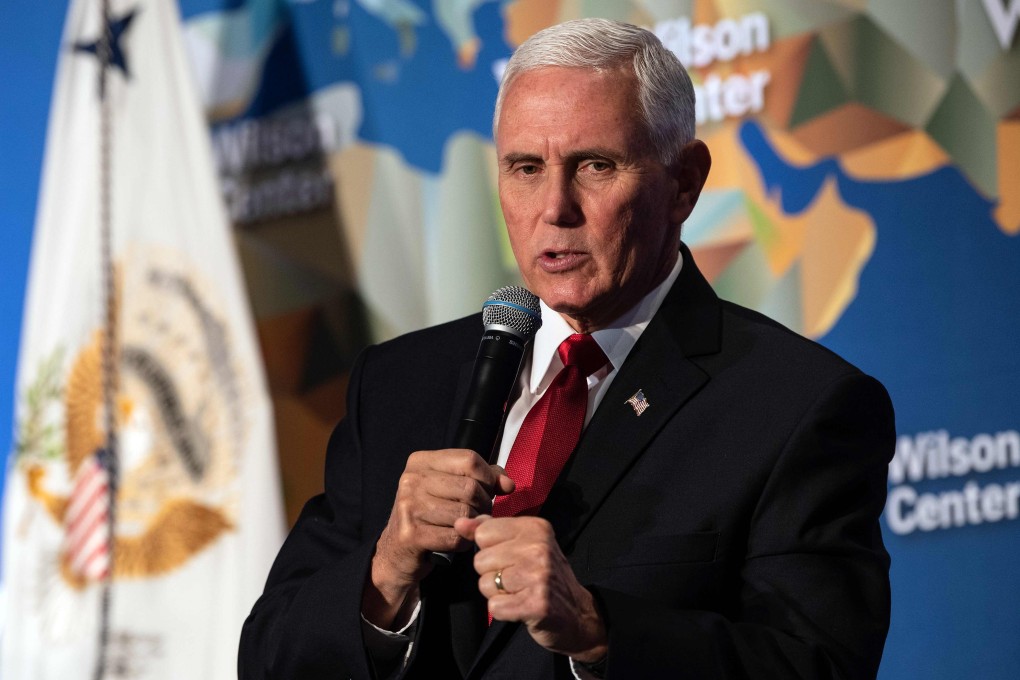Advertisement
Mike Pence’s China speech is just a symptom of Donald Trump’s incoherent foreign policy, drowning out more rational voices
- The vice-president gave two speeches in one: for those in the US who still don’t realise the trade war is hurting them, the other for the realists who know how global supply chains work
Reading Time:3 minutes
Why you can trust SCMP

The bluster around US Vice-President Mike Pence’s China speech last week drowned out another China speech in Washington, which was more subtle but no less important.
In a keynote address honouring the 75th anniversary of the Johns Hopkins University’s School of Advanced International Studies (SAIS), dean Eliot Cohen cited China’s arrival in international politics as one of the three most important geopolitical transformations since the school’s inception – the other two being the cold war and its dramatic conclusion.
Pence’s speech bounced between two opposite poles – hostility and outreach – more disorientingly than a schizophrenic on meth and, of course, got all the press.
Advertisement
Echoing the rhetoric of the anti-Beijing figures in President Donald Trump’s orbit – like Peter “Death by China” Navarro and former White House adviser Steve Bannon – Pence assailed the “political establishment” that remained “silent in the face of China’s economic aggression and human rights abuses”.
This is why it is worth contrasting Pence’s remarks with Cohen’s. Johns Hopkins SAIS is as establishment as it gets when it comes to American foreign policy.

For example, A. Doak Barnett headed Chinese studies at SAIS throughout most of the 1980s. A lifelong China hand who encouraged President Richard Nixon to open direct talks with Beijing, Barnett advocated taking a “containment without isolation” approach to China.
Advertisement
Select Voice
Select Speed
1.00x
